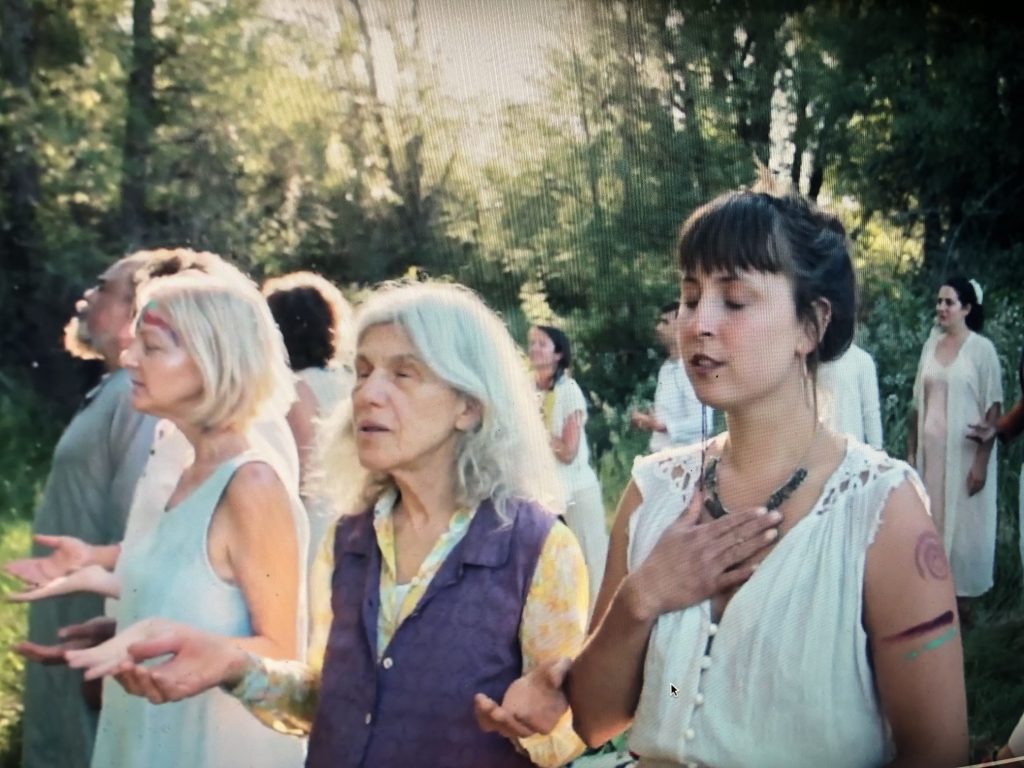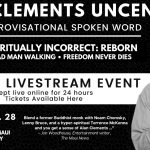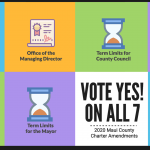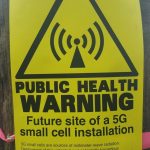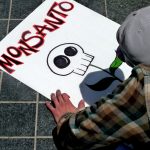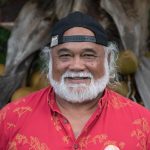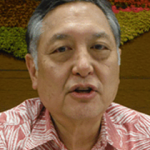What if, after the political horrors and social cruelties of his first presidential term, Donald Trump should win the 2020 election? That is the premise of Jonathan Greenberg’s new book America 2034: Utopia Rising, a cautionary tale.
It is 2034, and Donald Jesus Trump is still in power, having presided over the “consolidation of all of the major corporations in the country by the 400 Oligarchs and the Trump Family.” They have destroyed the middle class altogether, keeping “their armies of servants, slaves and employees” cowed by relentless propaganda and constant threat of torture and assassination by a vicious army of “black shirts.”
Prison camps are filled with destitute souls who can never pay the fines necessary to get out and whose body parts have become the only American export that the rest of the world will purchase.
Wait a minute! How can Trump have survived another 16 years in good enough health for all of this?. One of the principal stylistic methods of dystopian writing is hyperbole, or exaggeration of what might really be going on for satiric effect. By 2018, it isn’t much of a leap from all we have learned about Trump’s distasteful prurience to the idea that he and his oligarchs might prolong their lifespans by enslaving lactating mothers to suckle (several times a day) at their breasts.
Meanwhile, the air is so polluted that everyone wears masks, and there has been a serious decline in health from a diet of food poisoned by GMOs, pollution, and pesticides.
Enter (of all people) another Winston Smith, named after the hero of George Orwell’s 1984. Greenberg develops his hero as a fully rounded character, utterly miserable at his job of making a propaganda film where he has to force his actors to chomp down on ears of chemically contaminated corn with a pretense of appetite.
Just as Orwell’s Winston suffers from “instinctive feeling that the conditions you live in were intolerable and that at some other time that must have been different,” Greenberg’s Winston has sufficient moral consciousness to realize that he is living in a “warped universe” of criminality and tyranny.
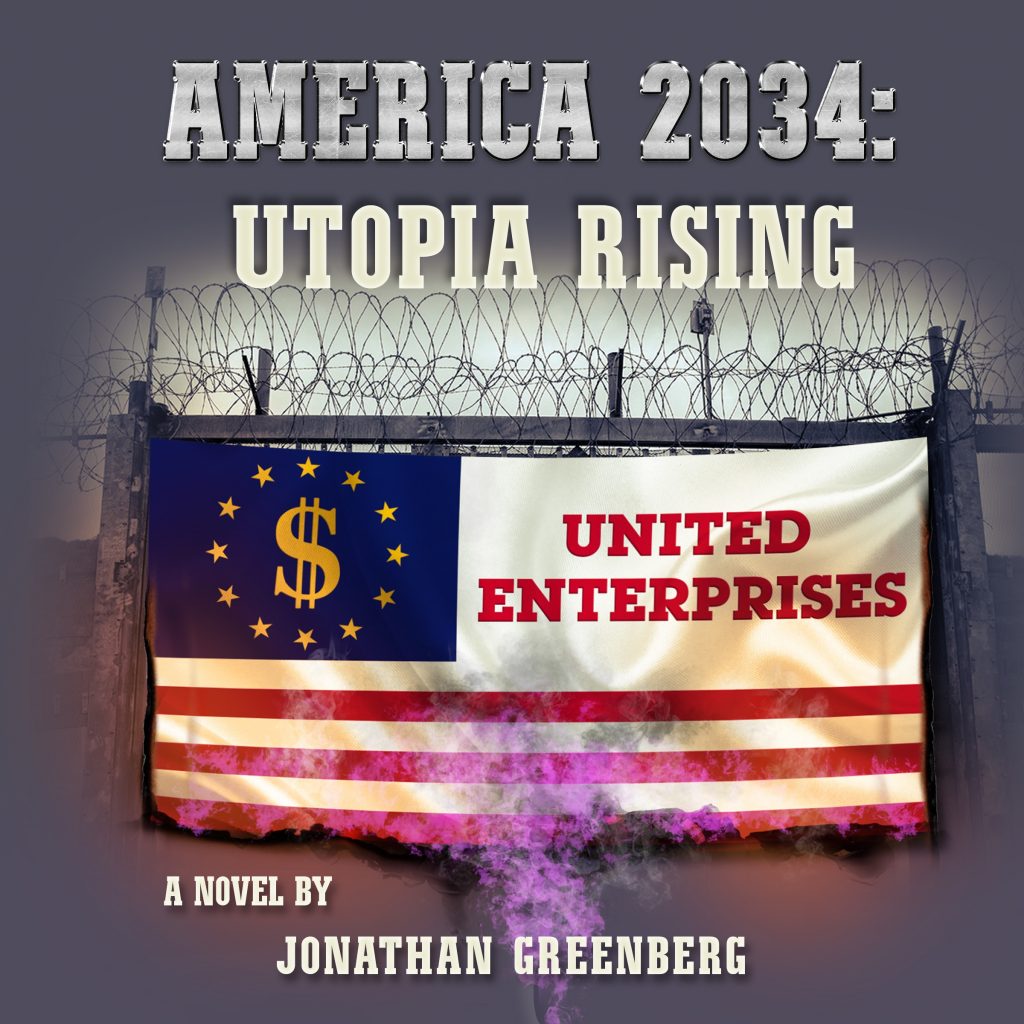 The trouble with dystopias is that they tend to make their readers miserable. 1984 is relentlessly dark, with only the briefest hint that there might be a better way to live based on Winston’s vague childhood memory and fleeting fantasies.Yet dystopian writing often enfolds alternative utopian possibilities – think of Orwell’s Animal Farm before the pigs turn themselves into human oligarchs. Or Aldous Huxley’s world of passionate and emotion-driven “Savages” who fail to succumb to the rationalized mechanical sensuality of his Brave New World.
The trouble with dystopias is that they tend to make their readers miserable. 1984 is relentlessly dark, with only the briefest hint that there might be a better way to live based on Winston’s vague childhood memory and fleeting fantasies.Yet dystopian writing often enfolds alternative utopian possibilities – think of Orwell’s Animal Farm before the pigs turn themselves into human oligarchs. Or Aldous Huxley’s world of passionate and emotion-driven “Savages” who fail to succumb to the rationalized mechanical sensuality of his Brave New World.
Likewise, in 2034, Greenberg alternates dystopia and utopia. Accounts of what is going on in his Trumpean “The United Enterprises of America” are interspersed with utopian scenes from “The United Peoples of America”. He devotes so many chapters to the latter that he doesn’t so much enfold his utopia within his dystopia as to suggest (as his subtitle hints) that his book is mainly about “Utopia Rising.”
As a result, he provides as much utopian hope as dystopian misery. His swiftly moving plot structure reminds me of J.R. R. Tolkien’s The Lord of the Rings series where “catastrophic” episodes (The Land of Mordor, Mount Doom) alternate with “eucatastrophic” alternatives (the Shire, Lothlorien).
The United Peoples of America have secured a significant swathe of California and the west coast as a “harmonious Wetopia.”
Greenberg introduces them at a meeting in a bomb-proof shelter under Google headquarters in Mountain View, California.
His heroes, Dawn and Maria, accompanied by their two teenage daughters, encounter real-life characters like Washington’s elder stateswoman Patty Murray and Native American rights advocate Winona La Duke in council with Google founder Larry Page, who, we are told, “knew more than almost anyone about the force field that protected their young country from the violent vengeance of the Trump Regime.” A force field created by “devices that both collect and harness psychic chi energy” to form a nearly indestructible shield seven miles above the land they have secured.
Guess who is also at the meeting? Elon Musk and Mark Zuckerberg. And later, Edward Snowden also makes an unexpected appearance. They are all examples of Greenberg’s quirky inclusion of real people.
Where Donald Jesus Trump attributes his success to “evolution as white men and God’s blessing of the fittest”, Maria and Dawn and their fellow utopians tune themselves in to a universal energy (a “Divine One Spirit”) that activates an altruistic mutation in their individual genetic makeup. Through reaching an empowering harmony in group singing, each activates an inward genetic mutation toward altruism, a capability for “the facilitation of the common good.”
Their plan is to bring about a “Great Expansion” of this “We-ness” to activate similar genetic changes in Trump’s enslaved populace and overthrow his hegemony.
“The United Peoples of America” do not see humans as a separate from but encapsulated within nature, with animals and birds and winds and tides as allies. Though readers might find all this cuddling with dolphins, campfire singing and praying to a “Council of Mystics” a bit sappy, Greenberg escapes the anodyne for the compelling: He uses a unique blend of technology and ecology to create interesting military strategies and arresting battle scenes like the sight of (Tolkien-style) eagle allies swooping down out of the sky to attack and dismember Trump’s cruelly effective attack drones.
Greenberg’s utopian norms have a solid grounding, moreover, in both recent technological thinking and ecological philosophy.
On the technological side, we have a whole literature about abandoning the mercantile cruelty of unregulated capitalism for a more community-oriented economy in what I have termed “The great turning from mutant capitalism to the circular economy.”
The ecological philosophy underlying 2034 matches the Gaia hypothesis that human beings are interdependent elements within an ecological system we must sustain in order to survive.
His technique of “activating” an evolutionary mutation by getting in tune with an all-powerful universal consciousness echoes Pierre Teilhard de Chardin’s concept that the natural order of molecular and particle science is underlain by a powerful radial energy rising into history in the form of human consciousness.
Video of the Four Directions Activation Ceremony, music by the band Utopia Rising:
Interview with author Jonathan Greenberg by Dr. Annis Pratt (click here for her website)
(Editor’s note: Jonathan Greenberg is the publisher of the Maui Independent)
Did your discovery that Trump was lying to you in 1984 about his wealth have anything to do with your decision to write this novel? Could you tell us more about it?
I first interviewed Donald Trump for the Forbes 400 in 1982, when he conned me into putting him on the list with a net worth of $100 million although, as I would later discover, he was worth less than a tenth of that amount. As I recalled in the Washington Post last spring, during the next few years he continued to feed me lies, which included calling me, in 1984 (of all years) pretending to be a fictitious executive named John Baron. The Daily Show’s Trevor Noah called this Trump’s “Origin Lie: The bullshit foundation that he built his entire bullshit career on.”
Of the thousands of people I have interviewed over the years, I have never encountered a person as socially insecure, deceitful, and narcissistic as Donald Trump. Yet he is also the most successful con man in history, having conned more than 60 million American voters in 2016 into believing that it would benefit them if Trump ran our government.
I wrote America 2034: Utopia Rising as both a vision of utopia, and as a cautionary tale of what might happen if Trump wins reelection in 2020. Using the insight I have gained through being the first person that Trump conned, 36 years ago, to advance his insatiable ego, I begin the book by framing a dystopian future that is built upon Trump’s greatest con of all. In the novel, Trump steals the 2020 election by staging an attack on polling places, then declaring a media blackout, martial law and state of emergency right before election day.
My satirical novel provides tangible form to a future so many of us fear. My hope is that in doing so, it becomes little less likely that Trump could get away with stealing our democracy.
What went into your thinking when you used Orwell’s 1984 and his hero Winston Smith as elements of plot and characterization?
At its best, my life’s work has been about “informing to empower,” which sometimes amounts to exposing and transforming corrupt narratives to help make a better world. Having worked for dozens of media organizations and having studied the treatment of media in totalitarian states, in writing America 2034, I adapted key elements of 1984 to bring Orwell’s Ministry of Truth and Doublespeak into the 21st Century and the world of President Donald Jesus Trump.
In the dystopian tale of America 2034, Winston Smith was born 50 years earlier, in 1984, of progressive parents with the last name Smith, who named him Winston as a protest against the Reagan Administration’s militarism. My Winston works at the propaganda mill Patriot News, “The Only Name in News” remaining after Trump rewrites the Constitution and jails all dissenters and critics.
The book modernizes Orwellian language and critique, taking the reader through a number of top level editorial meetings of Patriot News with Winston, which include President for Life Donald Jesus Trump’s unrestrained tirades.
Like in 1984, in 2034 it is mandatory for those citizens not relegated to slave labor camps to watch the government propaganda broadcasts, as they themselves are watched and observed by a nightmarish technologically-enriched version of Big Brother.
Unlike 1984, however, the resistance to the totalitarian state described in America 2034 is real—and successful. 1984 was a masterpiece, but it was also a hopeless, dark book. My novel is brighter in its perspective that darkness will not triumph over our collective light.
Did other works of dystopian fiction influence you? In what way? In plotting? Setting? Point of view?
I was a voracious reader of science fiction during my teen years, and was forever influenced by the worlds created by Robert Heinlein, Isaac Asimov, Ray Bradbury, Octavia Butler and most enduringly, the humorous Kurt Vonnegut. I had the good fortune to have spent two formative high school years in creative writing classes of Frank McCourt (an experience which we both recalled decades later in the New York Times Education Life).
What McCourt and Vonnegut infused in me was the value of maintaining a sense of humor about even the darkest material. Treating even the heaviest subjects with some degree of humor and laughter helps the medicine go down in the most delightful way. In America 2034: Utopia Rising, my intention has been to take the terrifying prospect of a Trump dystopia and make it more accessible, digestible, and readable through the use of irreverent humor.
I have noticed that you balance your accounts of The United Enterprises of America with what is going on in the alternate and better world of The United Peoples of America, and that you use “Utopia Rising” as a subtitle. What was your thinking about including so much utopian material?
At this moment in time we are at a crossroads on the road to human extinction. Climate catastrophe on a level that disrupts then destroys our existence is only a few decades away. Instead of leading other nations in addressing this, the runaway train that is the United States Government is heading straight off a cliff, and President Donald Trump is shoveling dirty coal into the engine to speed it up.
I believe deep in my heart that a better world is possible. But I also know that we need to envision it first before we can find our way there. That’s the beauty of utopian fiction: we get to show what might be possible, in our wildest, most wonderful dreams.
And these are not idle dreams! I have woven some of the most visionary contemporary solutions from the world of environmental activism into the book’s description of a thriving utopian economy.
In the enlightened, secessionist United Peoples of America, protected by a force field in California, Oregon and Washington, regenerative agriculture in small farming communes has replaced toxic pesticide agribusiness, providing work, housing, and nutrient dense organic food for everyone who needs it. Off the coast millions of people live on oceanic undersea kelp farms, restoring fish habitats, supplying healthy feed and food, and sequestering massive amounts of carbon from the atmosphere to reverse climate change.
These are the sort of bold solutions that will be necessary to turn our ship of state around, and they come to life in America 2034.
In America 2034, the imminent extinction of our species has triggered an epigenetic activation of the Oneness gene dormant in all human beings. 100 million people have awakened to this state of blissful Oneness.
For them, the values of caring, kindness, collaboration, cooperation and love are manifest. These values are often identified as feminine, and associated with matriarchal systems. It is no coincidence that four out of five of the members of the ruling council in the utopian nation are women.
I identify as a feminist man. This does not mean that I think women are intrinsically good and that men are bad. But I do feel that human society has, for thousands of years, been ruled with the patriarchal values associated with men: fear, anger, greed, hatred, violence and competition.
This has brought us to the precipice of extinction that threatens to consume all human life—and to the dystopia of a Donald Trump presidency.
The time has come for real change in how people everywhere in the world organize and collaborate for the common good. We have got to try something very different than fear mongering, racism and greed as organizing principles for governance. If we are to thrive on this planet, or to even survive, the matriarchal values described in the utopian world of America 2034 will create that change.
What are your expectations for the future of our democracy and of our planet?
I believe that there are utopian and dystopian elements within each of us. We get to choose which aspect of our nature that we follow, both individually, and collectively.
I am a passionate optimist. This optimism is periodically challenged by realism, sadness and frustration. Yet we are here to face these challenges, to experience the despair and then to jump back in the ring for another round with our demons.
Our nation and our planet are facing a grim future if we do not reverse course now. I am here to do my part to be the change that I want to see. I am encouraged by the many people that I meet who are also feeling activated by our urgent collective need for change and saying, “If not now, when, and if not me, who?”
I am hopeful that 2020 Vision will prevail in the next presidential election, and that as quickly as our institutions and the values of our government have fallen apart under Trump, they will be transformed to serve the public interest.
Time may prove my optimism to be unwarranted. I do not control this outcome. Like eight billion other humans, I simply control my own actions. Yet I have felt the utopia in my heart overcome the shadows within, and without. This encourages me to believe that we can all do better. A lot better.


